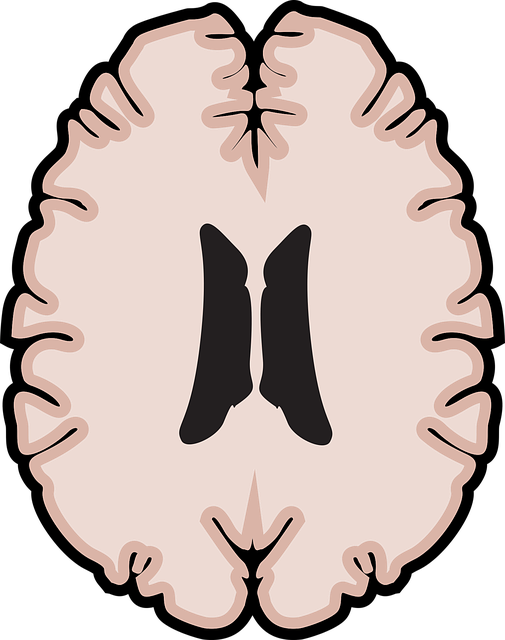Emotion regulation is key to optimal mental health, preventing issues like anxiety and depression. Englewood Independent Medical Evaluations (IMEs) offer objective assessments to tailor personalized treatments, fostering inner strength and improved well-being. Techniques like cognitive behavioral therapy (CBT) and self-care routines, taught through IMEs, empower individuals to manage emotions effectively. Integrating emotion regulation into daily life through mindfulness and coaching prevents emotional overload and reduces stress. A study shows significant improvements in adolescents with emotional dysregulation disorders after Social Skills Training using these methods. Cultural sensitivity ensures tailored strategies for diverse populations, enhancing treatment adherence and client satisfaction. Self-awareness exercises, integral to IMEs, improve mental health outcomes and quality of life.
Emotion regulation techniques are essential tools in enhancing mental health and overall well-being. This article explores the profound impact of teaching individuals to manage their emotions effectively, delving into the significance of understanding emotional responses and their connection to mental health. We discuss the role of Englewood Independent Medical Evaluations in therapy, providing insights on how comprehensive assessments can guide personalized treatment plans. Through practical techniques and real-world case studies, this guide offers valuable strategies for therapists and individuals seeking to integrate emotion regulation skills into daily life.
- Understanding Emotion Regulation and its Impact on Mental Health
- The Role of Englewood Independent Medical Evaluations in Therapy
- Common Techniques for Teaching Emotion Regulation Skills
- Practical Applications: Integrating Techniques into Daily Life
- Case Studies: Success Stories from Therapists Utilizing These Methods
Understanding Emotion Regulation and its Impact on Mental Health

Emotion regulation is a vital skill that plays a crucial role in maintaining optimal mental health. It involves understanding, managing, and responding to one’s emotions effectively, ensuring they align with an individual’s goals and values. This process is essential for navigating life’s challenges and fostering resilience. When individuals struggle with emotion regulation, it can lead to various mental health concerns such as anxiety, depression, or even more severe conditions that may require professional intervention like Englewood Independent Medical Evaluations Therapy.
By learning and practicing emotion regulation techniques, one can significantly improve their overall well-being. This is particularly relevant in today’s fast-paced world where stress management is a critical aspect of mental health policy analysis and advocacy. Effective emotion regulation strategies enable people to assess and mitigate risks associated with intense emotions, as outlined in risk assessments for mental health professionals. It empowers individuals to make thoughtful decisions and maintain healthy relationships, ultimately contributing to a more fulfilling life.
The Role of Englewood Independent Medical Evaluations in Therapy

Englewood Independent Medical Evaluations (IMEs) play a pivotal role in modern therapy practices, offering a unique perspective on an individual’s mental health journey. These evaluations provide an objective assessment, helping therapists and clients gain valuable insights into emotional regulation challenges. By integrating IMEs into therapy, professionals can tailor treatments to specific needs, fostering inner strength development and enhancing overall well-being.
Beyond their clinical application, IMEs contribute to broader mental health policy analysis and advocacy efforts. They help identify trends and patterns in emotional dysregulation, informing policy decisions aimed at reducing the stigma surrounding mental illness. This holistic approach ensures that therapy becomes a powerful tool not just for individual transformation but also for societal progress in addressing mental health concerns.
Common Techniques for Teaching Emotion Regulation Skills

Teaching emotion regulation skills is a vital component of holistic mental health care, and several effective techniques have emerged from the field of therapy, including Englewood Independent Medical Evaluations. These strategies empower individuals to navigate their emotional landscape with greater ease and resilience. One common approach involves cognitive behavioral therapy (CBT), which helps clients identify and challenge negative thought patterns contributing to emotional distress. By fostering positive thinking and reframing cognitive distortions, CBT enables people to manage their emotions more constructively.
Additionally, encouraging the development of a self-care routine for better mental health is a powerful tool in emotion regulation teachings. This involves promoting healthy habits such as regular exercise, adequate sleep, and mindful practices like meditation or deep breathing exercises. These self-care strategies support emotional healing processes by reducing stress levels and enhancing overall well-being, ultimately enabling individuals to regulate their emotions more effectively and sustain positive mental health outcomes.
Practical Applications: Integrating Techniques into Daily Life

Integrating emotion regulation techniques into daily life is a practical application that can significantly enhance one’s mental wellness. These strategies, often taught through therapy sessions like those provided by Englewood Independent Medical Evaluations, empower individuals to manage their emotions effectively. For instance, mindfulness exercises and cognitive reframing, key components of many therapeutic approaches, can be incorporated into routine activities such as meditation, journaling, or even simple walks in nature.
Mental wellness coaching programs emphasize the importance of consistent practice, encouraging individuals to adopt these techniques as part of their daily routines. Crisis intervention guidance from professionals also plays a vital role in teaching adaptive coping mechanisms that can prevent emotional overload. Furthermore, engaging in mental wellness podcast series production offers an accessible way to learn and share practical tips on emotion regulation, fostering a supportive community focused on overall well-being.
Case Studies: Success Stories from Therapists Utilizing These Methods

Englewood Independent Medical Evaluations Therapy has seen remarkable success stories through the implementation of emotion regulation techniques teaching. Therapists across various settings have utilized these methods to help clients manage and understand their emotions more effectively. For instance, a study focusing on adolescents with emotional dysregulation disorders showed significant improvements in their ability to cope with stress and anxiety after engaging in Social Skills Training. This evidence-based approach not only enhances self-awareness exercises but also fosters better interactions within social contexts.
Additionally, therapists highlighting Cultural Sensitivity in Mental Healthcare Practice have incorporated these techniques to cater to diverse populations. By tailoring emotion regulation strategies to consider cultural nuances, therapists create a more inclusive and effective therapeutic environment. Case studies reveal that this approach leads to higher client satisfaction and adherence to treatment plans. Self-Awareness Exercises, when integrated into therapy sessions, empower individuals to recognize and regulate their emotions, leading to improved mental health outcomes and enhanced quality of life.
Emotion regulation techniques, as supported by Englewood Independent Medical Evaluations therapy, play a pivotal role in enhancing mental health and well-being. By understanding the impact of emotional control on overall health, therapists can effectively teach clients practical skills to navigate life’s challenges. Integrating these strategies into daily routines fosters resilience and improves quality of life. The case studies presented highlight successful applications, demonstrating the potential for profound positive change when therapists utilize evidence-based techniques like those evaluated by Englewood Independent Medical Assessments.














